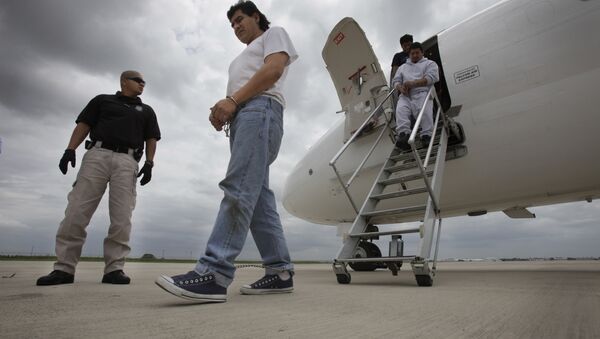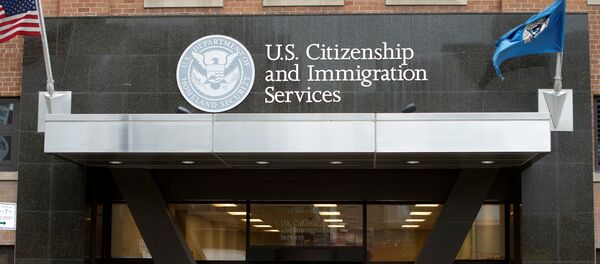According to Kelly, speaking from Mexico City where he joined Secretary of State Rex Tillerson to meet with top Mexican officials, the US will conduct immigration operations “systematically.” The retired general said the US would do things “in an organized way, in a results-oriented way, in an operational way, in a human dignity way.”
Trump, however, expressed himself in a starkly different manner. “It’s a military operation, because what has been allowed to come into our country, when you see gang violence…and all of the things--much of that is people that are here illegally. And they’re rough and they’re tough.” Trump remarked that the US is “getting really bad dudes out of this country” at “a rate that nobody’s ever seen before,” which sounded, to many, a lot like a formula for mass deportation.
Secretary Kelly, charged with carrying out the immigration operations, however, emphasized that military force would be absent from the process. Further, “no mass deportation” orders would be given to border patrol agents, Kelly noted.
Mexico City has not taken kindly to Trump’s statements. Mexican Foreign Minister Luis Videgaray said on Wednesday that he wished to “make it clear, in the most emphatic way, that the Mexican government and the people of Mexico do not have to accept measures unilaterally imposed on a government by another government.”
The trend of Mexican governments acquiescing to Washington, beginning in the 1930s may not continue much longer, according to Sputnik Radio host Brian Becker, in a recent episode of Loud & Clear. Mexico, with the tenth-largest population in the world, would surely have public opinion weigh in on how the Mexican government should negotiate with the US, he suggested.
"They’re rising up all over Mexico," James Cockroft, founder of the Network of Intellectuals, Artists and Social Movements in Defense of Humanity, said during a Loud & Clear interview. "The real threat [to Trump policies] is people rising up in Mexico and the United States," he said, foreshadowing what he suggests will be "spontaneous resistance movements, led, in many cases, by women."
"Governments in Latin America are pretty tense now with the deterioration, or the ostensible deterioration, in US-Mexico relations," said Cockroft, adding that "it involves possible military intervention."
Mexican Interior Minister Osorio Chong said, "we have expressed our concern about the increase of deportations." Policies pursued by the Trump administration, "might be hurtful for Mexicans,” Chong said. He pointed out that Mexico is worried about potential human rights violations by the US government, and that the US has "a long way to go" to "overcome the negative feelings that are prevailing now."
Following the meeting, Secretary of State Tillerson remarked that it is natural that "two strong sovereign countries from time to time will have differences." The top US diplomat added that the meetings were "very productive" and that "we listened closely and carefully to each other as we respectfully and patiently raised our respective concerns."




